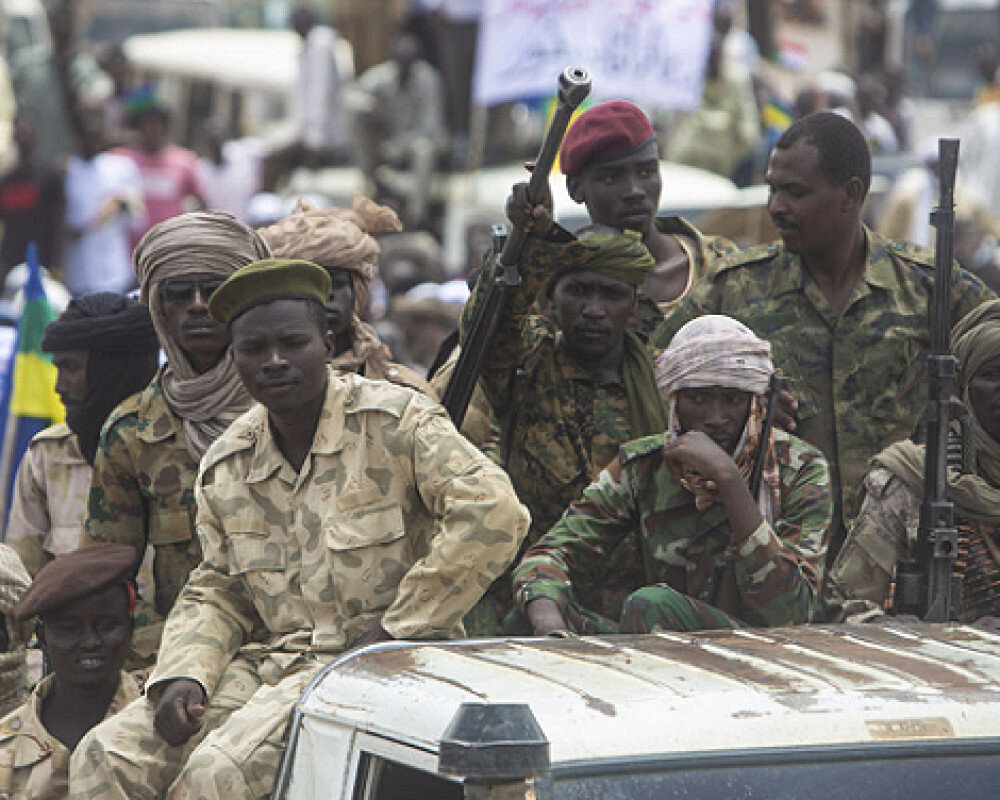
TEHRAN – As the Rapid Support Forces (RSF) consolidate control over western Sudan with the fall of el-Fasher, the capital of North Darfur, questions are growing about the involvement of foreign actors—particularly Israel and the United States—in shaping the trajectory of the country’s civil war.
While Israel has not formally recognized either the RSF or the Sudanese Armed Forces (SAF), mounting evidence suggests it has quietly tilted toward the RSF, prioritizing long-term strategic gains over short-term diplomatic optics. The United States, meanwhile, has publicly condemned RSF atrocities—but has done little to restrain its closest allies from supporting the group.
Frontlines shift
On October 26, the RSF captured el-Fasher, SAF’s last stronghold in Darfur. The city’s fall marked a grim milestone: the RSF now holds de facto control over more than a quarter of Sudan’s territory. According to the UN and eyewitnesses, the takeover was accompanied by mass killings, with RSF fighters reportedly separating men from women and children before executing civilians. The Sudanese government has stated that at least 2,000 people were killed, while medical sources cited by Al Jazeera and local witnesses suggest the real number could be significantly higher. The Red Cross described the situation as “absolutely beyond what we can consider acceptable,” warning of tens of thousands trapped without food, water, or medical aid.
The United States has officially labeled RSF’s actions in the Darfur city of Geneina during an earlier stage of the two-and-a-half-year civil war as genocide, and the fall of el-Fasher may soon join that designation.
Geopolitical gains
Israel’s pivot toward the RSF is not ideological—it is strategic, transactional, and deeply rooted in regional calculus.
Future leverage: The RSF now controls key swaths of Sudan, including parts of Darfur and Kordofan. Supporting the RSF gives Israel a stake in the post-war order, especially if RSF commander Mohamed Hamdan Dagalo, widely known as Hemedti, emerges as Sudan’s dominant power broker.
Red Sea access: Sudan borders the Red Sea—a corridor vital to Israel’s maritime security and trade. RSF territorial gains bring it closer to Port Sudan and Red Sea logistics routes, offering Israel indirect influence over a region increasingly contested by Persian Gulf powers and global rivals.
UAE-Israel-RSF nexus: The United Arab Emirates, RSF’s primary backer, is also one of Israel’s closest regional allies. Intelligence coordination between Mossad and Emirati services has reportedly facilitated covert support for RSF, including drone warfare tactics and battlefield logistics.
Normalization calculus: Hemedti has signaled openness to finalizing Sudan’s normalization with Israel, a process stalled since 2020. General Abdel Fattah al-Burhan, commander of the SAF and Sudan’s internationally recognized leader, has also expressed interest in normalization—but Israel’s engagement has leaned more decisively toward Hemedti and the RSF. Unlike SAF’s leadership, which is weighed down by rigid command structures and a legacy of repression, the RSF presents itself as agile and pragmatic—despite its record of mass atrocities.
Gaza playbook
The RSF has begun to mirror Israeli military rhetoric, invoking “human shields,” “urban warfare,” and “terrorist enclaves” to justify attacks on displacement shelters, clinics, and mosques. These are not just linguistic echoes—they reflect a shared strategic doctrine: the use of civilian infrastructure as battlegrounds, the deployment of drones for precision strikes, and the framing of mass violence as counterterrorism.
The comparison is deeply troubling. Just as Israel has faced global condemnation for its operations in Gaza—including formal accusations of genocide filed at the International Court of Justice—RSF now stands accused of genocide in Darfur, with eerily similar justifications. The convergence of tactics and messaging suggests not just influence, but ideological alignment in how war is waged and narrated.
The U.S. role
Despite condemning RSF, the United States has done little to curb its foreign sponsors—chiefly the UAE and Israel. This contradiction reveals a deeper truth: Washington’s condemnation may function more as a rhetorical gesture than as a policy directive.
The U.S. continues close strategic partnerships with both the UAE and Israel, despite their entanglement in RSF’s rise. Sudan’s normalization with Israel remains a U.S. foreign policy goal. If the RSF is the only actor willing to finalize that deal, Washington may quietly tolerate Mossad’s engagement—even if it undermines its own genocide designation.
Israel’s support is unofficial and routed through intelligence channels, giving both sides plausible deniability. The result is a policy that signals moral clarity but enables strategic ambiguity—a hallmark of realpolitik in a decade of proliferating wars.
Disclaimer : This story is auto aggregated by a computer programme and has not been created or edited by DOWNTHENEWS. Publisher: tehrantimes.com





